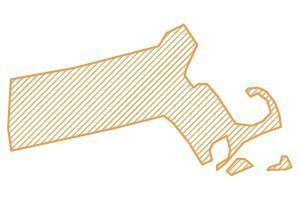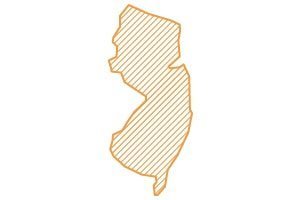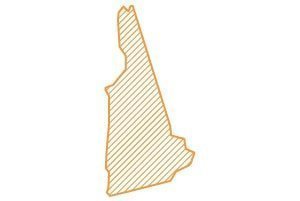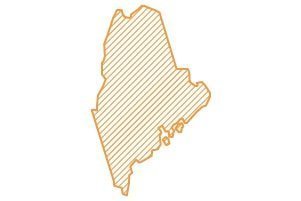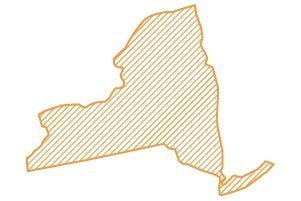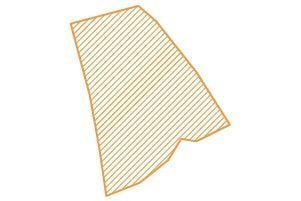For those looking for a library science program in Connecticut, Southern Connecticut State University is the answer. The school is ALA accredited and offers a Master of Library and Information Science degree, as well as other programs related to library and information science.
If you’re hoping to become a school librarian or media specialist, you can earn a graduate certificate or participate in a program offered by the Connecticut State Board of Education. Southern Connecticut State University offers both of these program types.
Are you considering pursuing your higher education in Connecticut? Keep reading to learn more about the state’s programs, as well as information on library jobs and salaries in Connecticut.
ALA-Accredited Masters Programs in Library and Information Science (MLIS) in Connecticut
Southern Connecticut State University is the only school in Connecticut that offers a masters in library and information science degree. SCSU is in New Haven, Connecticut, and is part of the Connecticut State University System. The university celebrated its 130th anniversary in 2023.
Library and Information Science at Southern Connecticut State University
The MLIS degree at SCSU is ALA-Accredited and started in 2016. The program has multiple tracks, including a specialized track that allows students to design a curriculum that meets their career goals. Southern Connecticut State University requires students to complete an internship in the field before graduation. There is also a capstone course that all students must complete to conclude the program.
- Online Degree
- ALA-Accredited
- Specializations in digital information management, school library media, or a customized curriculum
- 36-hour program
How to Apply
Before you can be admitted to Southern Connecticut State University’s MLIS program, you must complete a bachelor’s degree from a college or university that is regionally accredited. You must have graduated with at least a 3.0 GPA, although students with lower GPAs may be admitted on a conditional basis or required to complete three preparatory classes. GRE scores are not required as of 2016.
If you don’t meet these criteria, you may try to receive a recommendation from the Department Graduate Admissions Committee. However, these recommendations are rare and generally only given if the candidate has significant experience in the field.
If you are a non-U.S. resident, you must have a bachelor’s-equivalent degree and have English language proficiency.
There is a $50 fee for applying to Southern Connecticut State University’s library science program. You must also submit official academic transcripts, two letters of recommendation, a written statement about why you want to enter the program and what you plan to do with the degree, and a resume.
School Library Media Programs
If you want to become a school librarian or school library media specialist in Connecticut, you must earn a certification. Southern Connecticut State University offers two graduate certificates for those who hope to become school librarians. Teachers already credentialed in Connecticut who wish to become school library media specialists can also complete an alternative process through a program offered by the Connecticut State Education Board.
Graduate Certificate in School Library Media – Cross Endorsement at Southern Connecticut State University
The graduate certificate in school library media with a cross-endorsement at Southern Connecticut State University is an educator certification program for current teachers. The certificate allows these professionals to work as school library media specialists. With this certification, teachers will be prepared to manage a school library.
There are ten courses required to complete the certificate, including one elective that can be chosen from the Information and Library Science course offerings. You must also meet several academic standards while you’re participating in the program:
- Maintain a professional attitude that is necessary of a teacher
- Maintain confidentiality of all information about students or fellow teachers
- Perform all actions with integrity and honesty
If your performance drops below the requirements of the program, you will need to complete a plan for improving said performance. You must also complete a background check and student teaching. Once you have completed all these requirements, and passed any required licensing exams, you may be recommended for certification.
Entry Requirements
The requirements for entry into the Graduate Certificate in School Library Media – Cross Endorsement program are extensive. You must meet the requirements for the School of Graduate and Professional Studies, which include:
- A bachelor’s degree from a school that is regionally accredited.
- A GPA of 3.0 or higher (on a 4.0 scale) for that bachelor’s degree.
- Recommendation from the graduate program coordinator.
Additionally, the graduate certificate program has specific requirements:
- A bachelor’s degree from a school that is regionally accredited.
- A GPA of 2.70 or higher (on a 4.0 scale).
- Scores from a basic skills test in Mathematics, Writing, and Reading, which could be the Praxis Core, SAT, ACT, or GRE. Note: This requirement is waived if you already hold a Connecticut teaching certificate.
If you don’t meet the GPA requirements, you still have options. Southern Connecticut State University will consider your admission into the educator certificate program if you meet the rest of the admission requirements. You must also have strong letters of support, complete an admission interview, and receive the recommendation of the admission committee.
How to Apply
If you believe the graduate certificate program at Southern Connecticut State University is right for you, you can apply by submitting an official application to the School of Graduate and Professional Studies online. That application must include a $50 non-refundable fee paid by credit card. You may also be asked to submit recommendation letters, a personal statement detailing why you want to pursue the certificate, a copy of your teaching license (if applicable), a resume, and any related test scores.
Graduate Certificate in School Library Media – Initial Teacher Certification at Southern Connecticut State University
Unlike the cross-endorsement program at Southern Connecticut State University, the Initial Teacher Certification is for new teachers. This certificate, which can be combined with the Master of Library and Information program, allows students to become certified as K-12 teachers in Connecticut. The program is incredibly unique and welcomes students with a variety of backgrounds. The requirements for the Initial Teacher Certification are the same as the Cross Endorsement, with the addition of the Praxis Core Academic Skills for Educators exam.
Bachelor Programs Related to Library and Information Science in Connecticut
In Connecticut, there are two bachelor programs related to library and information science, both of which are at Southern Connecticut State University. However, it’s important to note that SCSU will be discontinuing these programs in 2024.
Information Management and Services — B.S. at Southern Connecticut State University
Southern Connecticut State University’s Department of Library and Information Science offers an undergraduate program for those interested in beginning their studies in information management. The bachelor of science program isn’t just for those hoping to move on to an MLIS; it is designed for students who want to work in various types of information fields and focuses on digital information.
If you want to major in Information Management and Services at Southern Connecticut State University, you must be an enrolled student and complete a major declaration/change form.
Note: Southern Connecticut State University is ending the Information Management and Services program in Fall 2024.
Information Management Services — Minor at Southern Connecticut State University
SCSU also offers a minor program in information science. This program is meant for those in other majors looking to supplement their degree with a concentration in information management services. If you want to add a minor in Information Management Services to your program at Southern Connecticut State University, you must be an enrolled student and fill out the minor declaration/change form.
Note: Southern Connecticut State University is ending the Information Management and Services program in Fall 2024.
Alternative Route to Certification for Library Media Specialists
The Alternative Route to Certification for Library Media Specialists (ARCLMS) is a program created by ACES and approved by the Connecticut State Board of Education. The program, developed because of the state’s shortage of library media specialists, allows teachers to complete one year of courses to earn a cross-endorsement.
To qualify for the program, you must have a valid Connecticut teaching certificate and be employed by a school or school district. The cost of the program is $5,000.
The program follows the American Association of School Librarians (AASL) National School Library Standards. ARCLMS is offered as a mix of online and in-person courses. Teachers participating in the program will have assigned readings and homework; regular attendance and participation are required. The program is divided into four categories: instruction, practicum experiences, professional learning, and embedded professional practice.
Instruction
This portion of the ARCLMS program is the most intensive. It requires 152 hours of study, which occur both in-person and online. Students will be expected to participate in online and in-person discussions, do homework and read literature relevant to the topic.
Practicum Experiences
During this portion of the program, which accounts for 36 hours of the curriculum, students will work with other library media specialists. They will observe to help them broaden their understanding of the profession and its responsibilities. Specifically, ACES hopes that students will learn about budgeting and participating in library programs.
Professional Learning
Professional learning is a build-your-own style portion of the program. After they analyze their specific educational needs, students will create a plan for the program that accounts for 20 hours. The plan will be presented and approved by their instructor.
Embedded Professional Practice
For the embedded professional practice section of the ARCLMS program, participants are expected to complete a literature review to further their understanding of the profession and media industry. Students will also need to conduct research to both further their understanding of the field and gain the ability to help students do their own research in the school library environment.
How to Become a Librarian in Connecticut
A master’s degree in library and information science (either a master of science or a master of arts) is required to become a librarian in Connecticut. Degrees earned from American Library Association-accredited schools will hold more weight. Experience in a library setting is also preferred for many positions.
Below are the library jobs common in Connecticut and the job qualifications:
Library Director/Management: The director or head administrators of libraries oversee the library’s daily operations. Sometimes there is only one director, and sometimes there is an administrative department. To become a library director, you must have an MLIS from an ALA-accredited program, experience supervising others, and at least 2-5 years of experience in the library field.
Library Assistant: Library assistant positions can vary depending on the type and size of the library. Generally, a library assistant will help in a specific department, although sometimes they will float between departments. A high school diploma and customer service experience are typically required for library assistant positions.
Research Librarian: This is a type of librarian typically found in academic libraries. Research librarians help students and faculty conduct research by providing guidance on using various library services. An MLIS and academic library experience are typically required for this position.
Library Media Specialist: School library media specialists, sometimes called school librarians, work in PreK-12 schools and help students and staff with research and technology in addition to more traditional library duties like checking out books. You must have a certification to become a school library media specialist.
Reference Librarian: A reference librarian helps all types of people, depending on the type of library. For reference, a librarian might help patrons use computers, look up information for people online, or recommend books or movies.
What Else Can You Do With a Library Science Degree in Connecticut?
Connecticut has so much to offer its residents, from its beautiful hills to its relaxing mid-size cities. The state’s cost of living is one of the main reasons people move there, especially compared to other big cities in the Northeast. The bustling economy makes it a great place for people to work, no matter the industry.
Insurance is king in Connecticut, and while it might now seem like it, library science degrees can be extremely useful for jobs at insurance companies. Insurance involves a lot of data and statistics, and librarians who specialize in data science can thrive in Hartford or other major cities in the state.
Since Connecticut is home to so many historical places, those interested in historical librarianship or archives will also find a home there. Not only are there several academic and public libraries that have archivist positions, but there are also many museums, historical societies, and genealogical societies that hire people with library science degrees.
Salary Opportunities
The U.S. Bureau of Labor Statistics reported in 2021 that the average salary for a librarian at a college or university library was $66,005. For elementary and secondary school librarians, the typical salary is around $65,044. Meanwhile, those working in public libraries made an average of $63,451 per year, while those working in the information sector (corporate libraries or other non-traditional positions) made $53,120 per year on average.
Additional Resources
For more information on libraries in Connecticut, visit: https://www.ctlibrarians.org/page/OurProfession
For more information about librarianship and Library Science, visit: https://www.ala.org/
For more information about ARCLMS, visit: https://www.aces.org/services/alternate-routes-to-certification/arclms

